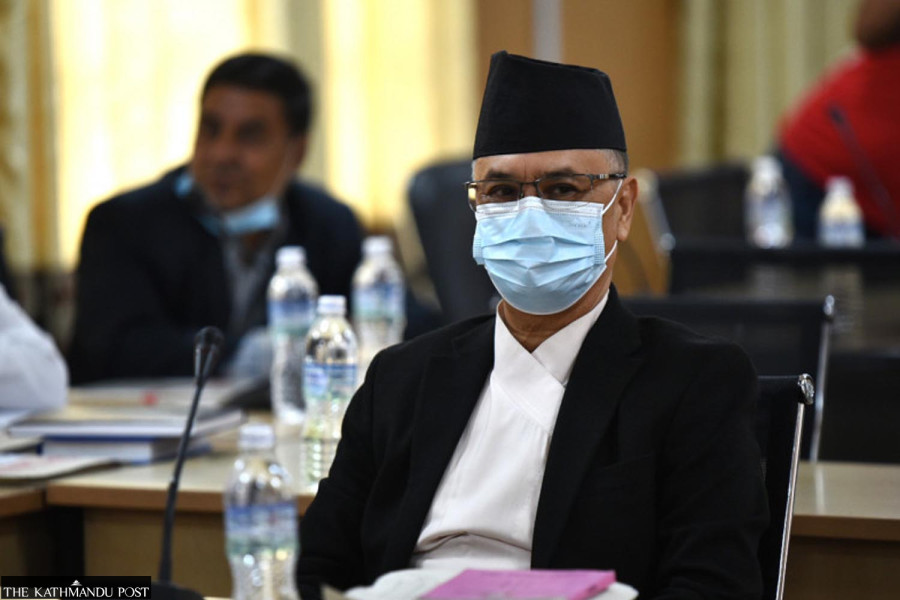Editorial
Chief concerns
The manner in which the Chief Justice impeachment affair unfolded has been disheartening.
The ongoing drama surrounding the impeachment of suspended Chief Justice Cholendra Shumsher Rana is perhaps the perfect illustration of all the wrongs that bedevil modern-day Nepali polity. In his capacity as chief justice, Rana made a mockery of the rule of law he was meant to protect by, for instance, asking for his share in cabinet appointments and reducing the sentences of hardened criminals. Frankly, he deserved to be impeached. Yet the manner in which the affair has unfolded has been disheartening. First, the ruling and opposition parties were again bitterly divided on the impeachment motion, even in a clear-cut case of judicial excess.
The ruling coalition led by the Nepali Congress was bent on impeaching Rana while the main opposition the CPN-UML was as adamant about protecting the suspended CJ. The House panel formed to recommend his impeachment was also divided along partisan lines. But that is just one problematic part. After the House expired without ruling on the motion, the suspended chief justice announced that he would be returning to the Supreme Court as chief justice. Rana’s rationale was that as the House term had expired, his impeachment motion had been rendered null and void.
But then the government made another blunder by putting him under house arrest. The constitution guarantees all Nepali citizens freedom of movement, and the government chose to limit Rana’s on the eve of the day that commemorates the same constitution. The National Human Rights Commission had to weigh in, asking the government to lift the house arrest. The UML, for its part, is livid. Therein lies another risk. Short of issues, the UML will use the impeachment issue to whip the electorate into a frenzy. This in turn will further coarsen Nepali politics.
Seven years after the new constitution came into being, none of our major political actors or those at the helm of our executive, legislative or judiciary seems much bothered about staying within their constitutional bounds. Everybody seemingly wants to exercise more and more power, including the country’s ceremonial president.
This country is running on an ad hoc basis and our important actors are behaving like a law unto themselves. Most affairs of state are being conducted on a transactional basis: The CJ rules in your favour in return for a plum cabinet seat for his handpicked person. The government tries to use muscle power to silence its critics. The opposition leaves no stone unturned to smear the government, with methods fair and foul. The ideas of separation of powers and mutual respect have gone out of the window.
People are naturally asking: If those tasked with making and implementing laws are themselves wantonly breaking them, why should only the masses abide by them? Such loss of public faith in state institutions and actors is insalubrious. Separately, on the basis of recent developments, the upcoming elections could be ugly affairs, with each political party trying to question the very legitimacy of the opponent’s agendas. If the major actors of the post-2006 political changes are not careful, there is a risk of mass disillusion with the new setup. This in turn will imperil the whole federal democratic project that the country sacrificed so much to bring into existence.




 13.12°C Kathmandu
13.12°C Kathmandu














